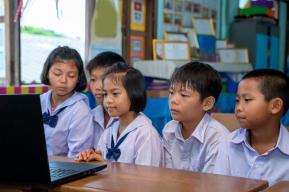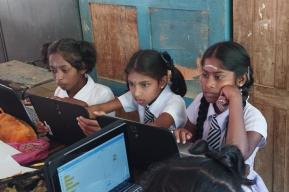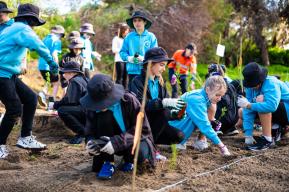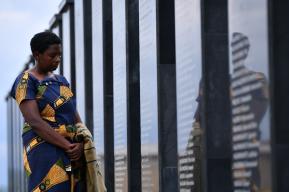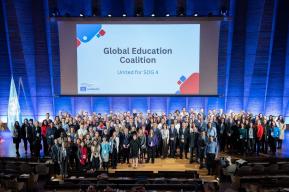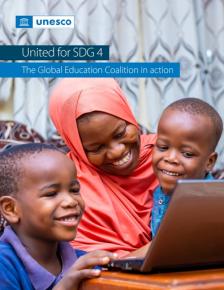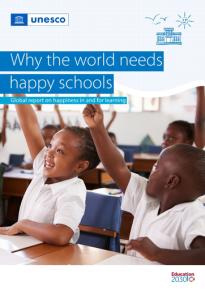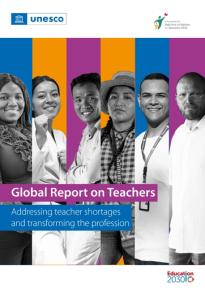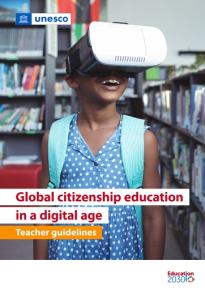
Education transforms lives
Education transforms lives and is at the heart of UNESCO’s mission to build peace, eradicate poverty and drive sustainable development. It is a human right for all throughout life. The Organization is the only United Nations agency with a mandate to cover all aspects of education. It has been entrusted to lead the Global Education 2030 Agenda through Sustainable Development Goal 4.
UNESCO provides global and regional leadership in education, strengthens education systems worldwide and responds to contemporary global challenges through education with gender equality as an underlying principle. Its work encompasses quality educational development from pre-school to higher education and beyond.
Join the #DanceForEducation campaign!
As the African Union celebrates 2024 as year of education, UNESCO has teamed up with the internationally acclaimed Ivorian band, Magic System, to launch a new version of the band’s hit song ‘Magic in the Air’. Entitled ‘Education in the Air’, the song has been rewritten to promote education as the key to unlock Africa’s potential.
Let's dance together to remind world leaders of the central role education plays in achieving all Sustainable Development Goals. Join UNESCO's movement and #DanceForEducation.

Our priorities
Keeping up the momentum to transform education
Long reads
The path to education of four children in Africa
All children are #Borntolearn. But so many never do. Meet Godfred, Priscilla, Rougui and Pape. As part of the GEM Report Spotlight Series, follow the education journeys of four school children in Africa for an exclusive glimpse into their lives as they navigate their paths to learning in diverse contexts. Embark on a virtual journey to explore the unique experiences, aspirations, and accomplishments of these remarkable children.

Leading and monitoring education
UNESCO stories
Photo essay: How UNESCO is supporting Afghan girls and women with literacy classes
UNESCO believes in the transformative power of education for girls and women in Afghanistan and its fundamental impact on the future generation of Afghan people. Learning how to read and write not only means a better life for girls and women – it also entails a bright future for the society with an empowered population.

Video playlist
Education transforms lives. Every day around the globe. This playlist shows UNESCO’s action in education and our vision for the future of learning.

Calendar
News
Publications
More publications
UNESCO Prizes on education
Subscribe to UNESCO's monthly newsletter on education







